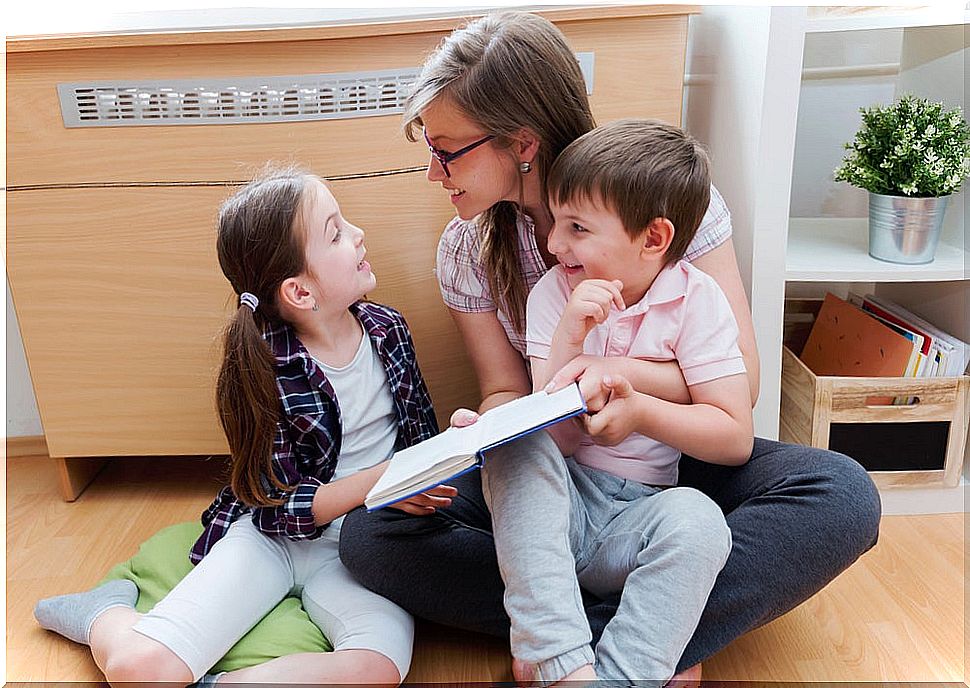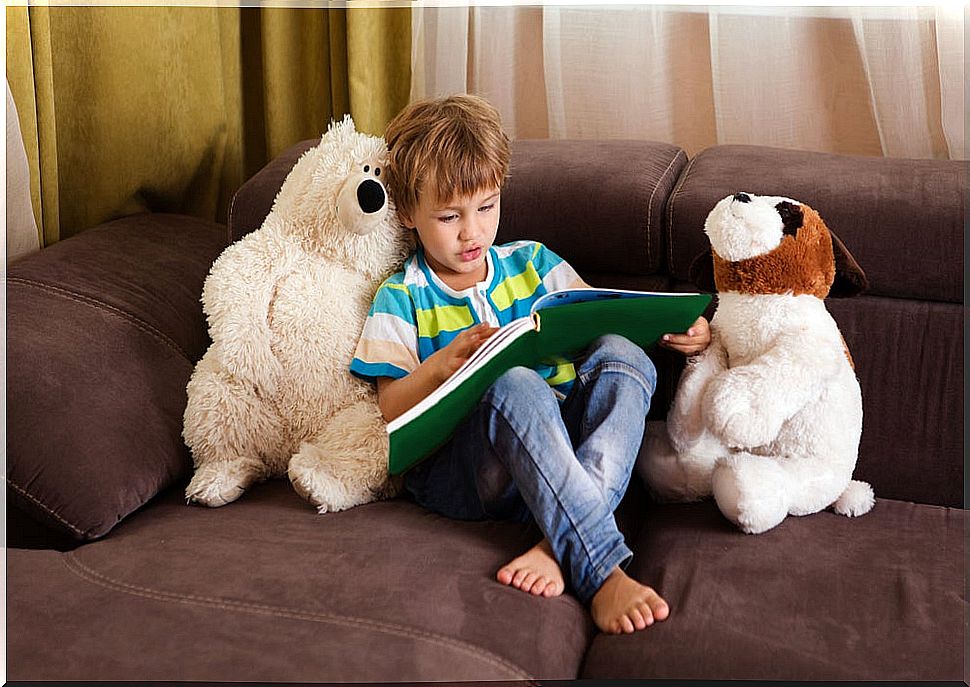The Effect Of Dyslexia On Children
Early detection helps children overcome enormous difficulties when it comes to reading and writing. With the appropriate psycho-pedagogical support, the dyslexic child can successfully develop his other capacities.

We know that children have different rhythms to learn. Some are faster, while others have a harder time. However, when dyslexia in children manifests, serious difficulties appear in learning to read and write.
Dyslexia is a more common learning disability than we imagine. Dyslexic children can be unjustifiably called stupid or slow, when they actually go to great lengths to read, write, and follow directions.
What is dyslexia in children?

Reading seems to be an automatic and simple procedure for those who do it with ease. However, reading is a complex task for the brain. While speaking is a natural process for children, reading involves learning.
Learning to read means realizing that words are made up of sounds, and then relating these sounds to the letters of the alphabet. By combining those sounds and those letters, words are formed. When you are able to recognize those words you learn to read.
However, it is not the same for all children. The brains of children with dyslexia develop and function differently. There are different cases, but in essence it is difficult to separate the sounds that make up a word and to understand which letters represent those sounds.
Dyslexia in children is not a question of intelligence or a desire to learn. Dyslexic children can be successful and can learn with appropriate teaching methods, for which early detection is important.
What are the symptoms of dyslexia in children?
When they are in preschool age, dyslexia in children has the following symptoms:
- He does not speak much, he does not know as many words as other children his age.
- Has trouble learning and naming numbers, colors, and letters.
- Fails to recognize or associate rhyming words.
- It is difficult for them to follow instructions, routines and rules must be reminded frequently.
As they grow older and have to begin to learn to read and write, dyslexic children have these symptoms:
- It is difficult for them to identify the syllables and sounds that make up words.
- They cannot pronounce the isolated sounds that make up syllables.
- They change the correct sequence of letters when reading and writing words.
- They have problems with handwriting and fine coordination.

If they reach adolescence without having received a diagnosis of dyslexia, they may present these characteristics:
- Vocalizing and decoding words is difficult for them, so they will avoid reading in public.
- Because they have trouble finding the right word, he uses words with different meanings but that sound similar.
- They have difficulty expressing ideas with correct order, spelling, grammar and punctuation.
- As communication can be affected, it is not easy for them to participate in group projects and their social life can be affected.
What effects does it have on children?
Children with dyslexia can have a hard time in school. They are often unfairly stigmatized as unmotivated, stupid or lazy, as well as being teased by their peers. If the dyslexic child does not receive the help he needs to improve, he is exposed to school failure.
This makes him a victim of negative messages and evaluations from his school, social and family environment.
Continued failures contribute to the dyslexic child losing motivation towards learning, and nurturing a feeling of insecurity towards himself and his abilities. This can be extended to other extracurricular activities, which affects enjoyment in all areas of your life.
The dyslexic child can develop emotional or behavioral problems when his condition is not known to treat. Among them are:
- Low self-esteem.
- Difficulties in social interaction.
- Decreased or increased appetite.
- Anxiety, in any of its forms.
- Sleep problems, such as insomnia or nightmares.
- Somatize stress. You have pain such as headaches, vomiting or abdominal pain, among others.
- Presents depressive symptoms, such as feelings of failure, insecurity, school difficulties, sadness, sudden mood swings …
- Behavioral disorders that manifest with aggressive or provocative behaviors, as an ineffective defense mechanism.
How can we help dyslexic children?

Dyslexic children are creative as they think in an unconventional way and can solve problems differently from others. By giving them help early, it is possible to overcome difficulties and avoid many of the difficulties that affect self-esteem and emotional well-being.
Beyond being unable to spell or having a harder time processing information, the most important thing is to support them so they don’t give up and drop out of school. Parents are responsible for encouraging reading and helping their children read when they are at home. There are fun ways to teach reading, find out!
It is possible to add another shade to dyslexia in children. To do this, they have to understand what dyslexia is all about and learn to fend for themselves. They must also be offered different opportunities, which allow them to cultivate self-confidence and promote success in areas such as sports, arts, or theater.
If your child is dyslexic, it is important that he knows that it is not wrong to be different, that it does not define him or interfere with the love you have for him. That difference may be the sign that you are very talented in other ways. Reading may be difficult for you, but you can do many other interesting and productive things very well.









